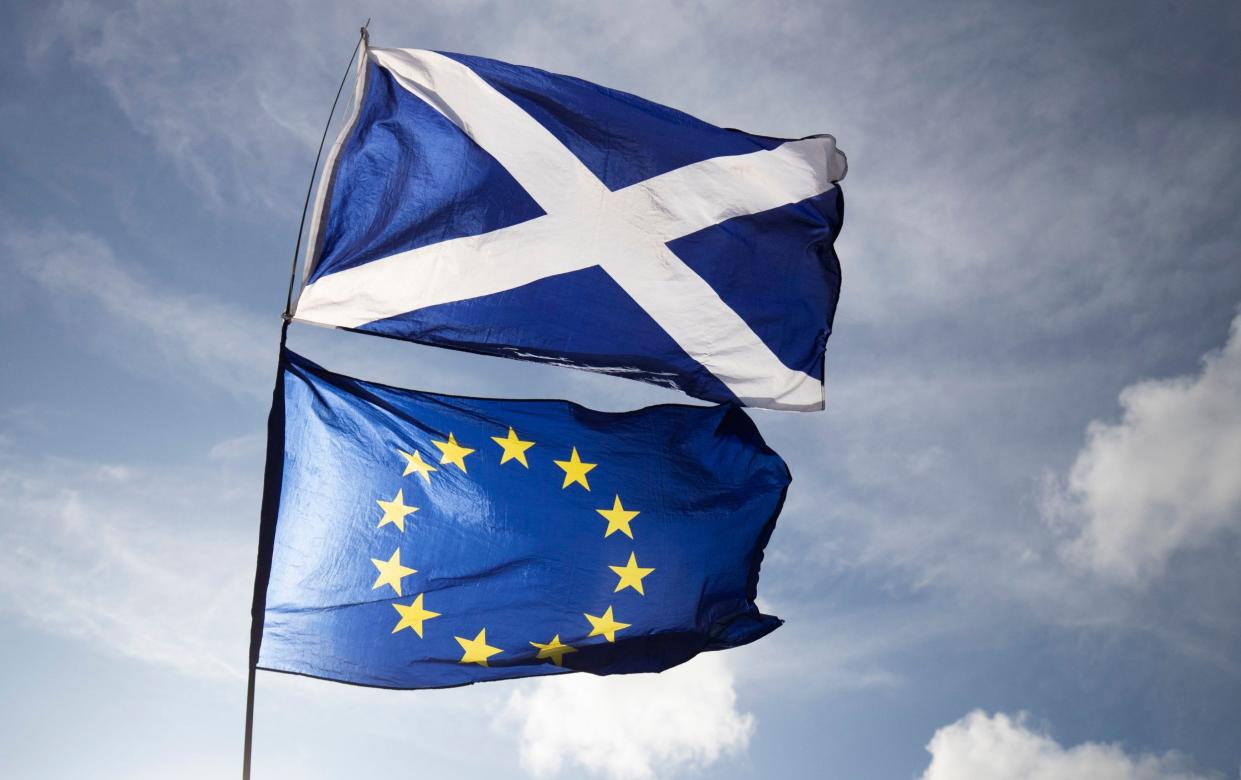Even nationalists are waking up to the disaster of Scottish independence

Nationalism thrives when certain elements are in place.
One of those necessary elements is the public’s willingness to believe an assertion provided it’s stated with enough confidence. Another is a degree of optimism that is so unrealistic as to be almost self-destructive. And a third is a conviction that emotional resonance matters more than hard economic facts.
Thus has the campaign for Scottish independence prospered in recent years. But recent events have not conspired to create as healthy an environment for the separatist movement as in bygone years. The hegemonies of Alex Salmond and Nicola Sturgeon have receded into the past, and along with them the arrogance and self-belief of the SNP.
Instead we have hapless Humza, beset by unfavourable polls, a politically difficult police investigation into his party’s finances, and a desperate search for a realistic path to independence that has so far not been found.
And with a general election on the horizon, and the prospects of 20 or more SNP MPs having to find alternative gainful employment, now is not the time for an unhelpful economist – an independence-supporting one at that – to regale the nationalist movement with decidedly inconvenient facts.
Professor Mark Blyth is a former member of the Scottish Government’s own economic advisory council. Even before his appointment was announced in 2021 he was busy telling audiences that the lack of detail in the SNP’s plans for independence robbed it of any credibility:
“The problem that I’ve seen so far is the complete lack of specificity as to ‘here is what the Scottish business model is now, here is where we want to be, this is how we’re going to get from here to here by doing this’. Instead of which what we’ve got is ‘Denmark is awesome, we should be like Denmark, if we were independent we would be Denmark’. No, you wouldn’t be Denmark. Denmark took 600 years to become Denmark.”
Well, quite.
And Professor Blyth was just as scathing about nationalists who sought to use Brexit as an excuse to advance Scotland’s independence from the UK. They needed to understand that Scotland separating from England was “the biggest Brexit in history, because the last time Scotland was fully economically independent, the word capitalism hadn’t been uttered. It’s been together for over 300 years, so if pulling apart 30 years of economic integration with Europe is going to hurt, 300 is going to hurt a lot.”
Scotland exiting the UK would be “Brexit times ten”, according to Blyth.
So the organisers of last weekend’s weirdly named Scotonomics Festival of Economics might have known what they were in for when they secured the Dundee-born academic’s participation in the event, via video from his home in the United States.
He did not disappoint. He was scathing about the long-cherished nationalist trope of creating a Nordic style economy once Scotland has broken free from the UK. Such claims were akin to saying “I’m a supermodel because I also have legs. It’s simply not true when you really think about it.”
But inviting an audience of nationalists to “think about it” is just as unhelpful as pointing out economic facts. The case for independence has been built, for as long as it has existed, on a series of unprovable assertions. Their persuasiveness lay in the difficulty in proving them untrue – a bit like trying to prove the Loch Ness Monster doesn’t exist.
But now Professor Blyth, who once advised the Scottish Government on economics and who is himself a supporter of independence, has gone and spoiled everything by committing the movement’s most heinous crime: he has told the truth.
To many nationalists, none of this will matter much. Emotional resonance, as noted previously, matters more to them than facts and stuff. The skirl of the bagpipes and the stirring sight of a bedraggled St Andrew’s flag fluttering in the cold Scottish air counts for far more than hard figures about GDP, exports and currencies.
Professor Blyth’s warnings that without a robust economy to support an independent Scottish currency, Scotland risked becoming a “mini Argentina”, holds no water for those who hark back to the good old days of the 1300s.
For them, fainthearts like Professor Blyth matter less than Bravehearts like Mel Gibson. But there will be others in Scotland who might be persuaded that, after all the bluster of the last decade or more, economic reality, disappointing though it is, might be allowed to displace the shortbread tin version of nationalism that has dominated politics in Scotland for too long.
Humza Yousaf’s problems just got worse. And this time he can’t blame the Unionists.

